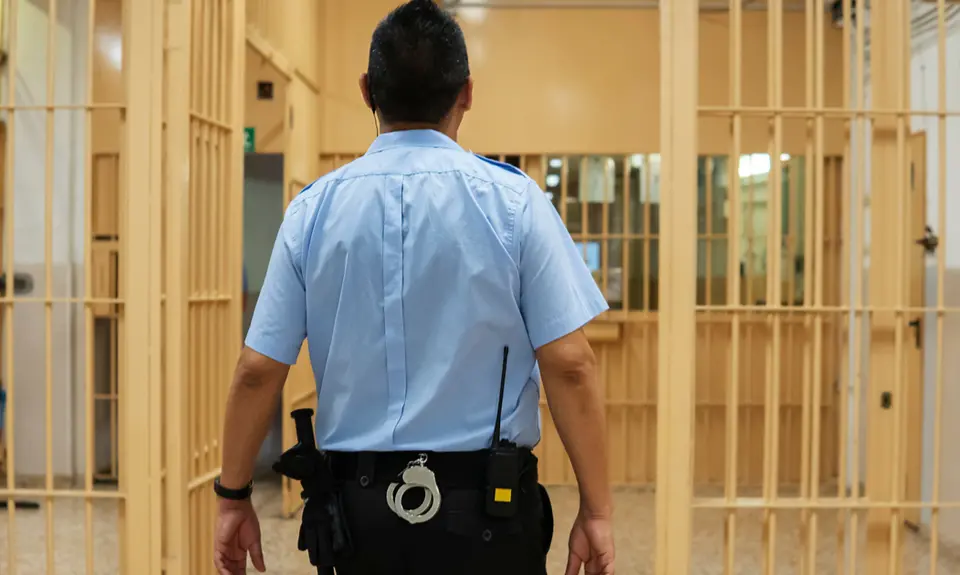“Confirmed Judges, Confirmed Fears” is a blog series documenting the harmful impact of President Trump’s judges on Americans’ rights and liberties. Cases in the series can be found by issue and by judge at this link
Trump Ninth Circuit judges Patrick Bumatay, Mark Bennett, Ryan Nelson, Daniel Bress, and Lawrence VanDyke argued in dissent that police failure to give someone Miranda warnings before interrogation, as required by the Supreme Court, does not violate the Constitution and subject officers to liability for violating constitutional rights. The majority, including Trump judge Eric Miller, rejected that view and let stand a panel decision holding exactly the opposite in Tekoh v County of Los Angeles.
Terence Tekoh, a Black immigrant from Cameroon, was working at a medical center in Los Angeles when a patient accused him of sexual assault. An LA County police detective found Tekoh working in the hospital and began to question him, but never gave him the Miranda warnings required by the Supreme Court before interrogation. According to Tekoh, the deputy brought him into a small windowless office, blocked his path to the exit, and accused him of the sexual assault. After Tekoh maintained his innocence during more than 35 minutes of questioning, the detective falsely told him that the alleged incident had been captured on videotape, but Tekoh continued to state that he was innocent. The deputy ignored Tekoh’s request for a lawyer and Tekoh then got up to leave. The deputy then stepped on Tekoh’s toes, put his hand on his gun, and used racial epithets in threatening to have Tekoh and his family deported and “put your black ass where it belongs.” Tekoh later explained that this left him “shaking” and triggered flashbacks of police brutality incidents in Cameroon. The deputy then handed Tekoh a pen and paper, and essentially dictated a confession that he demanded that he sign.
Although Tekoh was charged with sexual assault and the statement was used against him, a jury acquitted him on all charges. He then sued the deputy for damages for violating his Fifth Amendment rights. The trial judge refused to instruct the jury that the deputy’s failure to provide Miranda warnings violated the Fifth Amendment, the jury found against Tekoh, and he appealed. A three-judge Ninth Circuit panel, including Trump judge Miller, unanimously reversed, holding that the trial court erroneously refused to explain to the jury that, if proven, the deputy’s failure to provide Tekoh with Miranda warnings and the use of his statement at trial “deprived” him of his “Fifth Amendment right against self-incrimination,” for which the deputy could be held accountable.
When the deputy requested that the Ninth Circuit reconsider the decision, a majority of the judges who voted, including Trump judge Miller, declined. But Trump judge Bumatay, joined by Trump judges Bennett, Nelson, Bress, and VanDyke, joined by a few others, harshly dissented. Based on their own view of the history of the Fifth Amendment and the right against self-incrimination, they maintained that Miranda is only a “prophylactic rule,” as the Supreme Court has often referred to it, and that failure to provide Miranda warnings does not violate the Constitution. The dissent made clear that this question is much more than theoretical. Since police officers can be held liable only for violating a “constitutional right,” Bumatay stated, the dissent’s view means that the deputy in this case, or any police officer in any case, cannot be held liable under federal civil rights law for violating the ”prophylactic rule” of Miranda. According to the dissenters, the panel decision was an example of “brazen judicial overreach” that contradicts the “text and history of the Fifth Amendment” and the “weight of precedent.”
Although agreeing with some of the dissent’s analysis, Trump judge Miller explained why the dissent’s proposed result was unacceptable. Even assuming that Bumatay was correct about the history of the Fifth Amendment, and agreeing that Miranda was “not an originalist decision,” Miller wrote that Ninth Circuit judges “lack authority” to disregard the Supreme Court’s precedent. As Miller explained, in striking down a Congressional law that tried to overturn Miranda in the Dickerson case, the Supreme Court specifically held that Miranda “announced a constitutional rule” and, as the Court indicated in another case, established a “personal constitutional right.” Federal civil rights law thus provides a “remedy,” Miller stated, when police like the deputy in this case fail to provide Miranda warnings before interrogating a suspect like Tekoh. The dissent’s arguments may help the deputy “in preparing a writ of certiorari” to try to persuade the current Supreme Court to change the law, Miller concluded, but they are a “poor reason” for the Ninth Circuit to reconsider the panel decision.
As a result of the Ninth Circuit’s decision, Terence Tekoh will have a proper opportunity to get justice and accountability for the deputy’s misconduct in interrogating him, including the failure to provide Miranda warnings. Yet the opinions of the Trump judges in the case, including even Judge Miller who agreed with the result, are extremely troubling. Putting aside what the Supreme Court may or may not do on the issue, the Trump judges’ views suggest significant disregard for the importance of holding police accountable for the violation of constitutional rights as in Miranda. Indeed, a few more votes would have allowed the dissenting Trump judges to reconsider the case and rule against Tekoh.
To help preserve and extend the principle of police accountability for violating constitutional rights, it is crucial to our fight for our courts that President Biden nominate and the Senate promptly confirm judges for the Ninth Circuit who recognize the importance of this principle. Four judges on that court have stated that they will be taking senior status upon confirmation of their successors, who have yet to be nominated.
